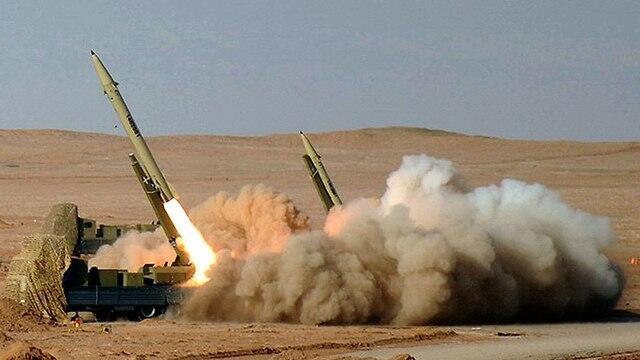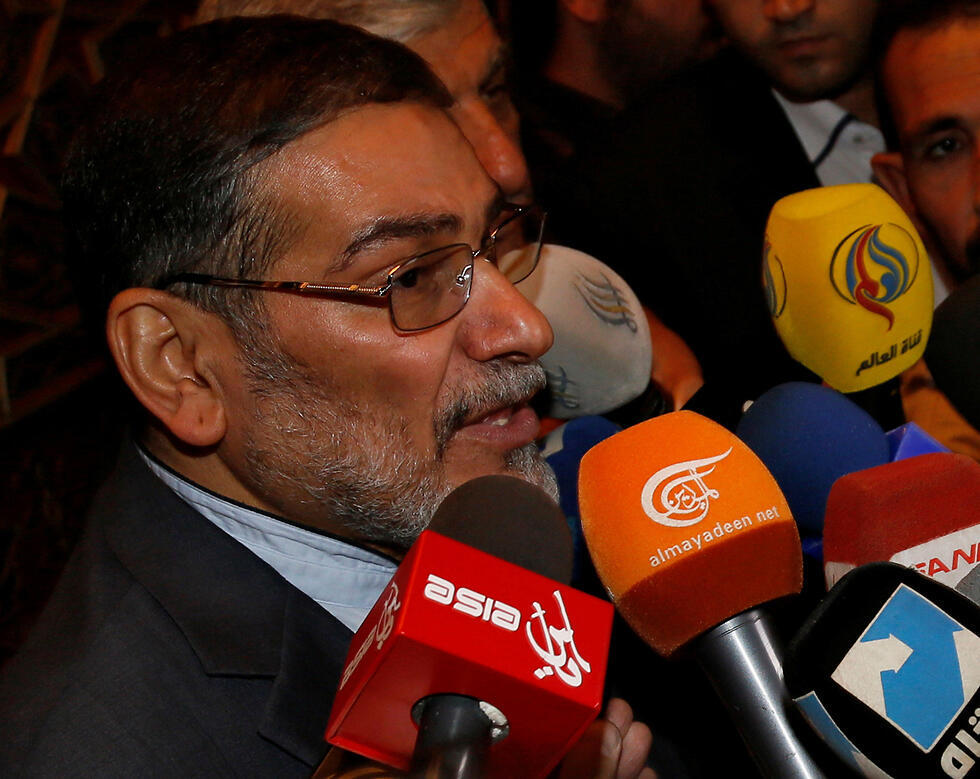Getting your Trinity Audio player ready...
Iran will continue supplying high-precision missiles to its proxies in Lebanon and Gaza so they would be able to respond to Israel’s “acts of stupidity with hellfire” said the country’s Supreme National Security Council Secretary Ali Shamkhani on Tuesday.
and Twitter
The remarks come in the wake of a massive aerial bombardment launched by Israel Air Force on Iranian targets in Syria last Monday, which came in response to the surface-to-surface rocket launched at Israeli territory by Iranian Quds Force and intercepted by the Iron Dome a day earlier.
Shamkhani, a close aide to Iran’s Supreme Leader Ayatollah Ali Khamenei, also dismissed the success of Israeli military operation meant to expose and destroy the Hezbollah terror tunnels dug along the Israel-Lebanon border.
"There is no greater shame to the Zionist entity, which claims to have superior intelligence capabilities, than the fact that tunnels—hundreds of kilometers long—had been dug under this entity’s nose, and the fact that one of their ministers turned an Iranian spy," he said referring to former minister Gonen Segev, who was found guilty of spying on Israel for Iran and will serve 11 years in prison.
Speaking at the National Conference on Space Technologies, Shamkhani added that Iran would keep working to improve the accuracy of its missiles arsenal despite the international pressure, but has no plans to increase their range.
"Iran has no scientific or operational restriction for increasing the range of its military missiles, but based on its defensive doctrine, it is continuously working on increasing the precision of the missiles,” Shamkhani said.
A UN Security Council resolution that accompanied the 2015 nuclear deal called upon Tehran to refrain for up to eight years from work on ballistic missiles designed to deliver nuclear weapons. But Iran said that call did not amount to a binding order and has denied that its missiles are capable of carrying nuclear warheads.
Washington has also told Tehran to stop developing its satellite-launching technology, saying it was concerned that the same techniques could also be used to launch warheads.
Last week, Hassan Nasrallah, the leader of the Iran-backed Hezbollah, warned that the "resistance axis" — as the group refers to itself, Iran and Syria — might change their reaction to Israeli strikes in Syria, including with a bombardment of Tel Aviv.
Nasrallah added that it’s in the interest of Israeli citizens for the terror group to continue developing precision-guided missiles capabilities. "I want to say something to the people of Israel: It’s in your interest to tell Netanyahu to allow Hezbollah to develop accurate missiles. If the missile is accurate, it will hit the military bases in the heart of Tel Aviv, and not your home,” the 58-year-old leader said.
Reuters contributed to this report.




